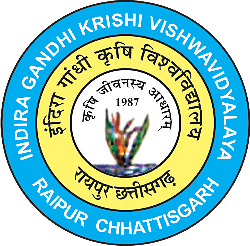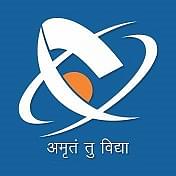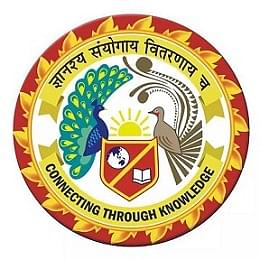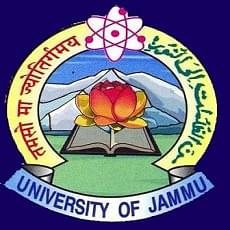Ph.D. Botany Introduction, Admission, Eligibility, Duration
Introduction about Ph.D. Botany
A Ph.D. in Botany at the top best phd college
is an advanced research-focused degree that delves deeply into the study of
plants, their biology, ecology, evolution, and their interactions with the
environment. This interdisciplinary field encompasses various sub-disciplines
such as plant physiology, genetics, ecology, taxonomy, molecular biology, and
biotechnology, among others.
How can I apply for admission to a Ph.D. Botany?
Applying for admission to a Ph.D. program in Botany
involves several steps. Here's a general guide on how to proceed:
- Research
Programs: Begin by researching universities and
institutions that offer Ph.D. programs in Botany. Look for programs that
align with your research interests, faculty expertise, and career goals.
Consider factors such as program reputation, available resources, and
funding opportunities.
- Meet
Prerequisites: Ensure you meet the prerequisites for
admission, which typically include a bachelor's and/or master's degree in
a relevant field such as botany, biology, ecology, or related disciplines.
Some programs may also require specific coursework or research experience.
- Contact
Potential Advisors: Identify
faculty members whose research aligns with your interests and reach out to
them to express your interest in joining their research group. Building a
rapport with potential advisors can strengthen your application and
increase your chances of acceptance.
- Prepare
Application Materials: Most
Ph.D. programs require a variety of application materials, which may
include:
- Completed application form: Fill out the
application form provided by the university or institution.
- Transcripts: Submit official transcripts from
all previous academic institutions attended.
- Letters of recommendation: Request letters of
recommendation from professors or professionals who can speak to your
academic abilities and research potential.
- Statement of purpose: Write a compelling
statement outlining your academic background, research interests, career
goals, and why you're interested in pursuing a Ph.D. in Botany.
- Curriculum vitae (CV) or resume: Provide a
comprehensive overview of your academic and professional achievements,
research experience, publications, presentations, and relevant skills.
- Standardized test scores: Some programs may
require GRE scores, although this requirement is becoming less common in
some fields.
- Submit
Application: Complete and submit your application
materials by the specified deadline. Be sure to double-check all
requirements and follow the instructions carefully.
- Interview
(if required): Some programs may require an interview as
part of the admissions process. Prepare for potential interviews by
familiarizing yourself with the program, its faculty, and your own
research interests and goals.
- Await
Decision: After submitting your application, wait to
hear back from the admissions committee regarding their decision. This
process may take several weeks to several months, depending on the
program.
- Consider
Funding Options: Investigate funding opportunities such as
scholarships, fellowships, assistantships, or research grants to support
your Ph.D. studies. Many programs offer financial assistance to qualified
students, but competition for funding can be intense, so it's essential to
explore all available options.
- Acceptance
and Enrolment: If you receive an offer of admission,
carefully review the terms and conditions, including any funding packages
offered. Once you've made your decision, formally accept the offer and
complete any required enrolment steps to secure your place in the program.
What is the eligibility for a Ph.D. Botany?
Eligibility requirements for a Ph.D. program at best5 college in India in Botany can
vary depending on the institution and the specific program. However, here are
some common eligibility criteria you might encounter:
- Educational
Background: Most Ph.D. programs in Botany require
applicants to have a relevant bachelor's and/or master's degree.
Typically, this means a degree in botany, biology, ecology, plant
sciences, or a related field. Some programs may accept students with
degrees in other disciplines if they have relevant coursework or
experience.
- Minimum
GPA: Many programs have a minimum GPA requirement
for admission. This requirement can vary but is often around 3.0 on a 4.0
scale. Some highly competitive programs may have higher GPA requirements.
- Standardized
Test Scores: While standardized test scores like the GRE
(Graduate Record Examination) were traditionally required for admission to
Ph.D. programs, many institutions are moving away from this requirement.
However, some programs may still ask for GRE scores, particularly for
international applicants or when other parts of the application are less
competitive.
- Research
Experience: Strong research experience, either through
independent projects, internships, or research assistantships, can
strengthen your application. Demonstrating your ability to conduct
independent research and contribute to the field of botany is often highly
valued.
- Letters
of Recommendation: Ph.D.
programs typically require letters of recommendation from professors or
professionals who can speak to your academic abilities, research
potential, and suitability for doctoral studies. Aim for recommendations
from individuals who know you well and can provide detailed insights into
your qualifications.
- Statement
of Purpose: Applicants are usually required to submit a
statement of purpose outlining their academic background, research
interests, career goals, and reasons for pursuing a Ph.D. in Botany. This
is an opportunity to demonstrate your passion for the field and how your
interests align with the program.
- Interview
(if required): Some programs may require an interview as
part of the admissions process. This interview could be conducted in
person, over the phone, or via video conferencing. It's an opportunity for
the admissions committee to learn more about you and your research
interests.
- English
Proficiency: For international applicants whose native
language is not English, proof of English proficiency may be required.
This is typically demonstrated through standardized tests such as the
TOEFL (Test of English as a Foreign Language) or the IELTS (International
English Language Testing System).
How long does it take to complete a Ph.D. Botany?
The time it takes to complete a Ph.D. in Botany can vary depending on several factors including the program structure, the student's prior education, the nature of the research, and the individual's pace of work. On average, it typically takes around 4 to 7 years to complete a Ph.D. in Botany. This timeframe usually includes coursework, comprehensive exams, dissertation research, and writing. Some students may complete their Ph.D. in less time, especially if they enter the program with a strong background in botany or related fields, while others may take longer, particularly if their research requires extensive fieldwork or laboratory experiments. Prospective students need to research specific programs and discuss expectations with advisors to get a better understanding of the time commitment involved .
Syllabus of Ph.D. Botany
The syllabus for a Ph.D at best college in India. in Botany can vary depending on the university and the specific focus of the
program. However, I can provide a general overview of the topics commonly
covered in a Ph.D. program in Botany :
- Core
Courses:
- Advanced Plant Physiology
- Plant Taxonomy and Systematics
- Molecular Biology and Genetics in Plants
- Plant Ecology and Evolution
- Plant Anatomy and Morphology
- Plant Biotechnology
- Plant Pathology
- Plant Biochemistry
- Research
Methodology and Techniques:
- Experimental design and statistical analysis
- Advanced laboratory techniques in plant
sciences (e.g., PCR, DNA sequencing, microscopy)
- Fieldwork methods in plant ecology and botany
- Bioinformatics tools for analyzing plant
genomic data
- Research ethics and integrity
- Specialized
Elective Courses:
- Advanced topics in plant physiology (e.g.,
stress physiology, photosynthesis)
- Plant molecular biology techniques
- Advanced plant ecology (e.g., community
ecology, ecosystem ecology)
- Phylogenetics and phylogenomics
- Advanced topics in plant pathology
- Advanced plant biotechnology (e.g., genetic
engineering, tissue culture)
- Seminar
and Journal Clubs:
- Presentations and discussions on recent
research in botany
- Critical analysis of scientific literature
- Research proposal presentations
- Dissertation
Research:
- Independent research project under the
supervision of a faculty advisor
- Original research contributing to the field
of botany
- Dissertation writing and defense
- Professional
Development:
- Teaching assistantship responsibilities (if
applicable)
- Presentation skills development
- Grant writing workshops
- Participation in scientific conferences and
symposiums
- Publication of research findings in
peer-reviewed journals
- Optional
Interdisciplinary Courses:
- Courses from related fields such as ecology,
genetics, microbiology, environmental science, or bioinformatics may be
included to support research interests.












